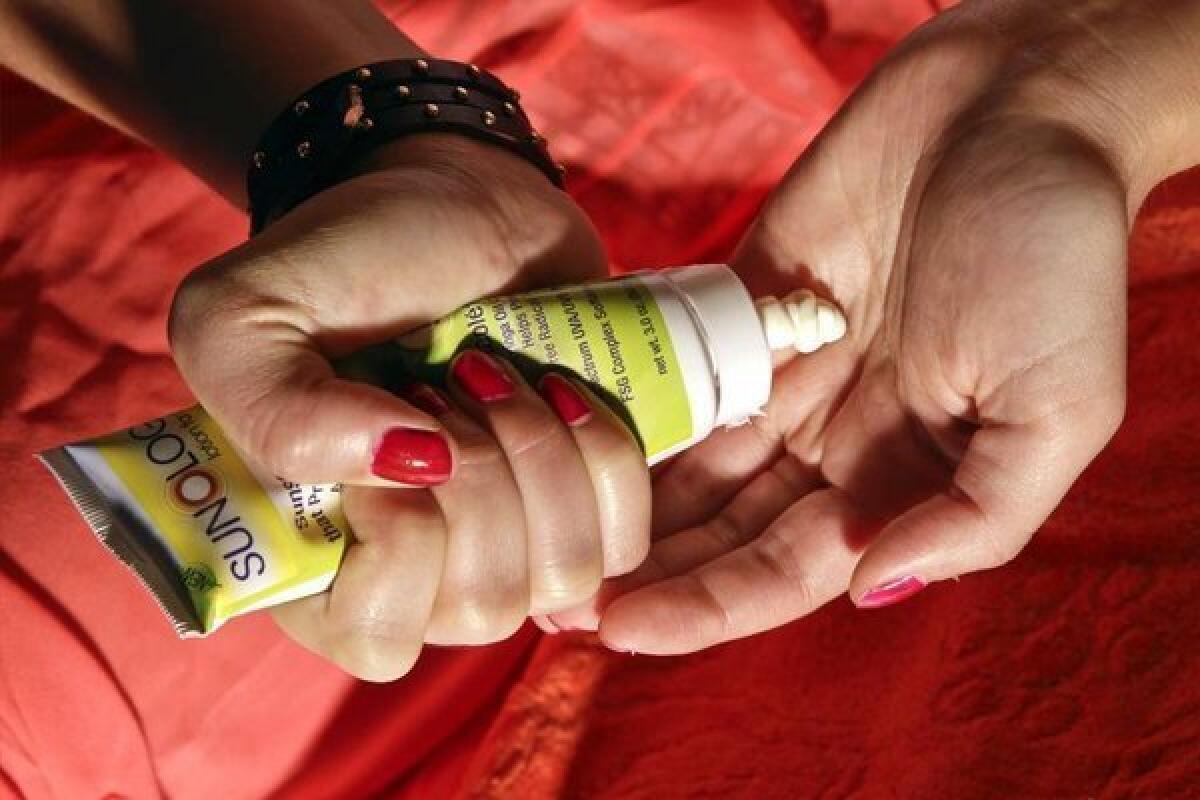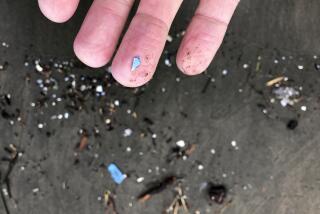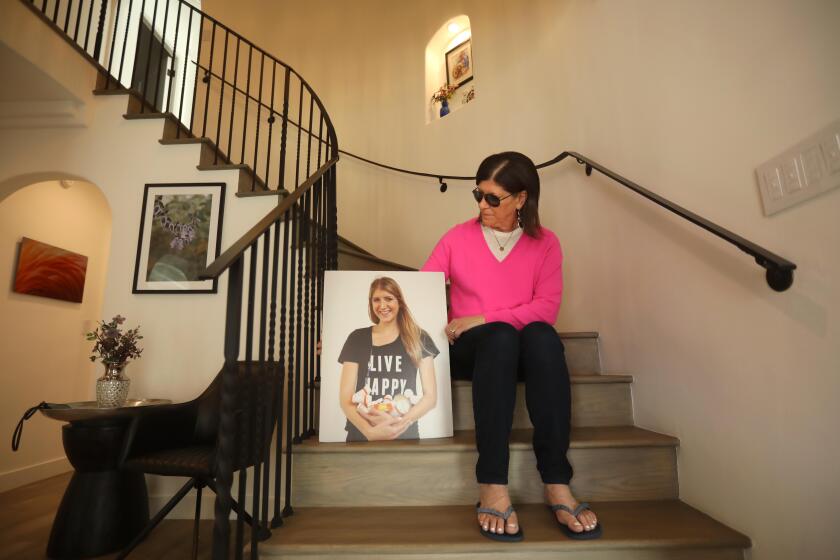Daily sunscreen use slows signs of aging skin, study finds

As if reducing the threat of skin cancer was not enough, scientists report that they have shown using sunscreen daily can slow the signs of aging skin -- even into middle age.
Skin ages as people age, obviously. The sun is a major culprit in the skin’s deterioration. Signs include wrinkles, of course, but also deterioration in texture and an increase in visible blood vessels.
Scientists from Queensland Institute of Medical Research and other institutions divided 903 Australians 55 years old and younger into groups who used sunscreen with an SPF of at least 15 daily -- on face, neck, arms and hands -- and those who did so at their own discretion. The first group applied sunscreen each morning, after swimming or sweating heavily and after a few hours in the sun.
After 4 1/2 years, members of the first group were 24% less likely to show signs of increased aging, the scientists wrote.
Their work was published Monday in the Annals of Internal Medicine, and the researchers said this was the first time sunscreen was shown to be effective against aging in humans.
To assess the state of the skin over time, experts looked at the back of the left hand. The daily sunscreen users also were evaluated every three months to ensure they were sticking to the program.
In 1992, at the start of the experiment, almost 60% of the participants had moderate skin aging, but the effect of daily sunscreen use did not depend on how much aging had already occurred, the researchers said. What did appear to matter was use of a liberal dose of sunscreen.
The scientists noted that people spend billions of dollars a year on treatments to retard wrinkles -- many of them unproved.
The scientists also randomly assigned study participants to take B-carotene pills or a placebo. They found no evidence to indicate that B-carotene affects skin aging but said the study was too small to reach a conclusion.
mary.macvean@latimes.com
Twitter/@mmacvean







